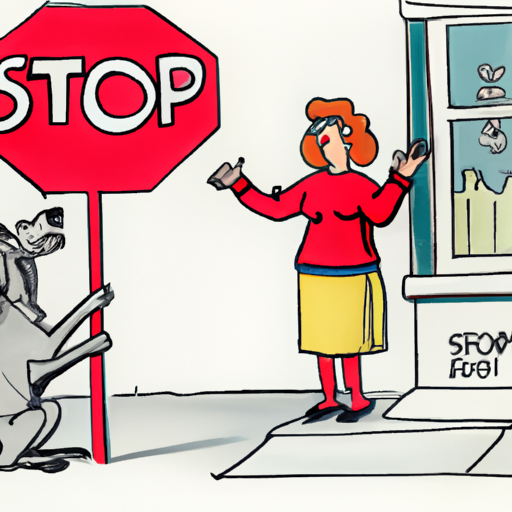As a caring pet parent, you undoubtedly want to ensure a harmonious environment both for your beloved canine and those around you. It’s important to remember that barking is a natural form of communication for dogs. However, excessive barking can become an issue. This comprehensive guide will provide actionable steps to help manage your dog’s barking.
1. Understand Why Dogs Bark
Before you can effectively address your dog’s barking, it’s essential to understand why they’re barking in the first place.
- Attention Seeking: Dogs may bark to get your attention or to initiate play.
- Alarm/Alert: Dogs often bark when they sense something unfamiliar.
- Anxiety: Dogs suffering from separation anxiety may bark excessively when left alone.
2. Remove or Mitigate the Trigger
Identifying and addressing the trigger is often the most straightforward solution.
- If your dog barks at people or other animals passing by the window, close the blinds or move your dog to another room.
- If your dog barks at noises, use a white noise machine or play soft music to mask the sounds.
3. Training to Control Barking
Training can be a powerful tool in managing your dog’s barking.
- Teach the “Quiet” Command: Start by saying “Quiet” when your dog is barking. Once they stop, reward them.
- Desensitization: Gradually expose your dog to the trigger in controlled settings until they become used to it.
4. Use Appropriate Tools and Devices
There are various tools and devices that can assist in reducing your dog’s barking.
- Anti-barking devices: Devices that emit a high-pitched sound whenever your dog barks can be effective.
- Bark collars: These collars deliver a harmless but irritating spray or vibration when your dog barks.
Remember to use these tools responsibly and consult with a professional before using them.
5. Consult a Professional
If your dog’s excessive barking continues despite your best efforts, it might be time to consult a professional dog trainer or a behaviorist.
6. Regular Exercise and Mental Stimulation
Regular exercise and mental stimulation can significantly help reduce excessive barking.
- Physical Exercise: Regular walks and playtime can help expend your dog’s energy, reducing their need to bark.
- Mental Stimulation: Puzzle toys and training sessions can keep your dog’s mind occupied and less likely to bark out of boredom.
7. Create a Calming Environment
Creating a calming environment can help reduce your dog’s anxiety levels.
- Calming Music: Soft, slow-tempo music can have a calming effect on dogs.
- Comforting Scents: Certain scents, such as lavender, can have a calming effect on dogs.
8. Consistency is Key
No matter which methods you choose, consistency is key to success.
- Be Consistent: If you respond to your dog’s barking one way one day and another way the next, it can confuse your dog.
- Be Patient: Changing behavior takes time, so be patient with your dog.
FAQ
1. How long does it take to train my dog to stop barking?
This depends on your dog, the reason for their barking, and how consistent you are with training. It can take several weeks to several months.
2. What if my dog barks at strangers or other dogs?
This may be a sign of fear or aggression. It’s best to consult a professional to address this issue.
3. Can I use a bark collar on my puppy?
It’s generally not recommended to use a bark collar on a puppy. Training and socialization are more effective in the long run.
4. How do I know if my dog’s barking is due to anxiety?
If your dog only barks when you’re not home, destroys items, or shows other signs of distress, they may be dealing with separation anxiety. It’s best to consult a professional in this case.
5. What should I avoid doing when trying to stop my dog’s barking?
Avoid yelling at your dog to be quiet—it just sounds like you’re barking along with them. Punishment is not effective and can make the situation worse.



